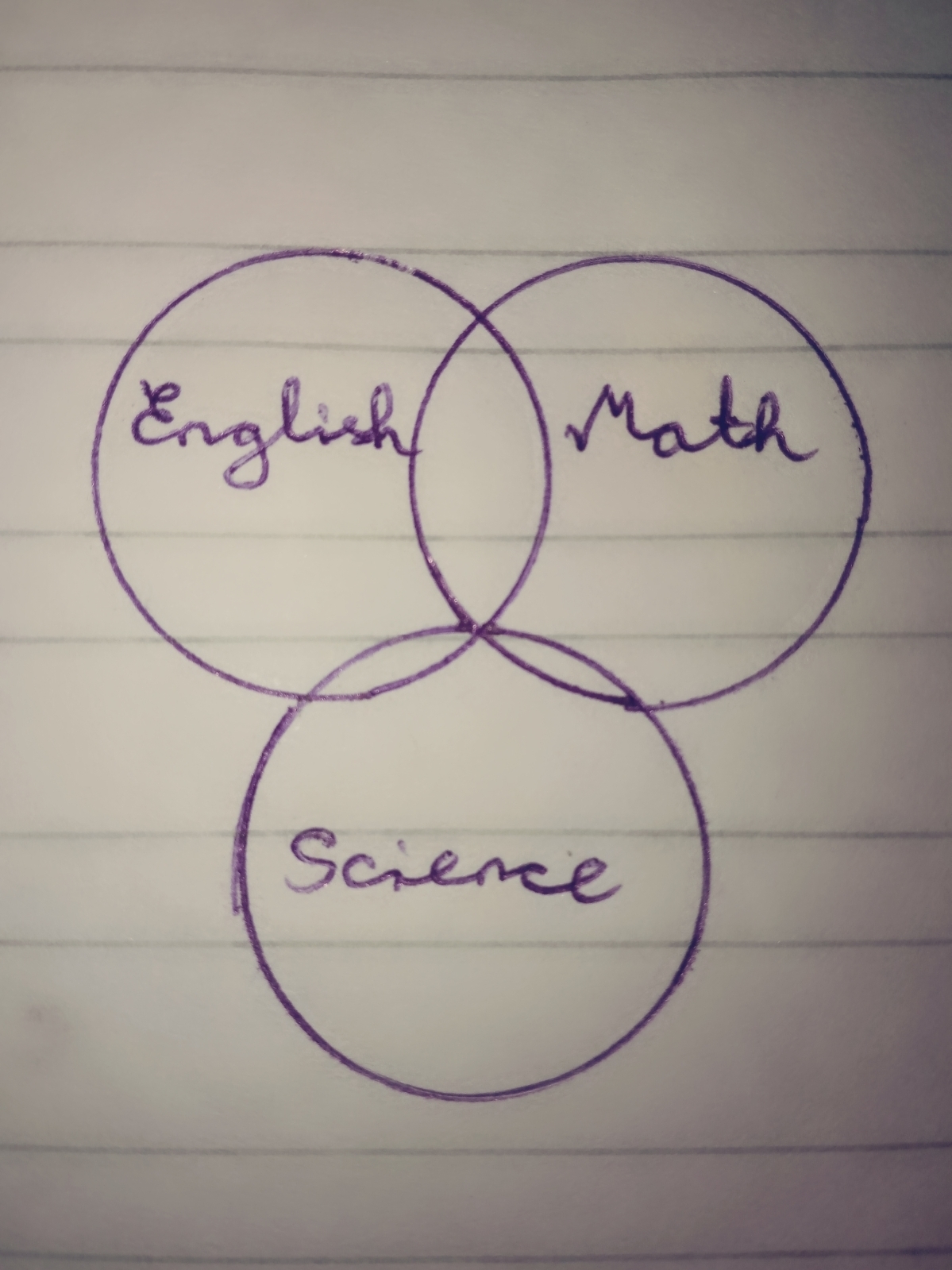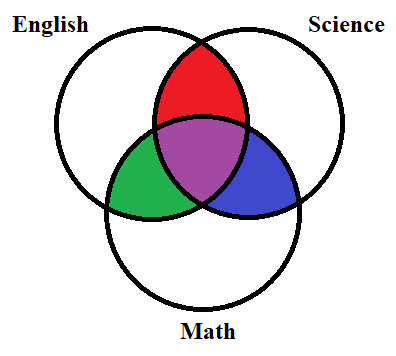School Time!
In a particular school, English, math, and science are taught to all students, where
- some students who like English also like math;
- some students who like math also like science;
- some students who like science also like English.
Is there at least 1 student in the school who likes English, math, and science?
This section requires Javascript.
You are seeing this because something didn't load right. We suggest you, (a) try
refreshing the page, (b) enabling javascript if it is disabled on your browser and,
finally, (c)
loading the
non-javascript version of this page
. We're sorry about the hassle.
8 solutions
There could be student in the center, so it is possible to have a student that likes all three
Log in to reply
The two options are "yes, always" and "no, not necessarily". This is justifying "not necessarily", which is different from "never".
he who likes science likes English, who then likes maths
If a student likes maths, then he also likes English which means he will also like the left subject.
I didn't understand the solution 😑
thank you. I can understand what 'some' means.
hi hi hi hi hi hi hi hi hi hi hi hi hi hi hi hi hi hi hi
HI IHI IHIH HIHJ HIH HIHH H
hihi hnhi hih hi hi hih hi hi hi hi hi hi hi hi hi hi hi hi hi hi hi hi hi hi hi hi hi hi hi my name is jeff
Your venn diagram demonstrates that all the prepositions can be met without anyone liking all three subjects - very elegant solution.
If anyone likes English,then he likes math.He likes math and so he likes science.So he likes all of them.
 In the above picture that situation rises in which no student likes English, mathematics and science at a time. hence the given statement should not be necessarily true.
In the above picture that situation rises in which no student likes English, mathematics and science at a time. hence the given statement should not be necessarily true.
This is the best of the Venn diagrams, because there is no universal intersection area. The others should simply write a 0 in this area.
Bonus question: In the diagram, all circles have the same area and intersect at 1 point. Prove that the triangle formed by the second intersection between the circles has the same area with the triangle formed by the centers of the circles.
Log in to reply
Connect the 3 centers and the 3 points of second intersection. This is a regular hexagon as all sides are equal radii and all interior angles are equal as figure has 3-fold symmetry.
Thus the diagonals are equal, and form 2 congruent equilateral triangles, which necessarily have equal areas.
QED
For example, you could have 2 students who like math and english only, 2 who like math and science only, and 2 who like science and english only.
If some students who like English also like Math, then they are a student who likes math and could also be students who like math and also like science. it never says anyone dislikes any subject as the answer implies.

If a student likes two subjects, he must belong in the region contained by two circles. There are two regions of overlap between a pair of circles, one that is purple and one that is not. Therefore, to meet the requirements, it is not necessary that the students must be in the purple region (they can be in the red, green, or blue region instead).
With only partial knowledge of every student and no definite sample size, you can just put one in every given aspect and get a 0 on who likes all three subjects.
Because only “some” students who like English also like math, there is an implicit understanding that there are other students who like English but don’t like math.
It follows that there may be some students who only like English (or only like math, or only like science).
Therefore, this is definitely not a situation where there will “always” be a student who likes all 3 subjects (but there might be).
The information is simply saying "some of A are B, some fraction of B is C, some fraction of C is A." But, a person may not always be part of that "some", so the answer is "No, not necessarily". Remember that "not necassarily" does not mean "never", it just means that it does not always have to be true.
The answer, "yes, always" is an absolute. There couldn't be an absolute.
Sometimes there is an absolute. For instance, if there are 3 students total, and 2 in the math class and 2 in the science class, there absolutely must be a student who takes both classes.
Here's a counterexample with 3 students in the school: